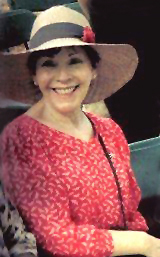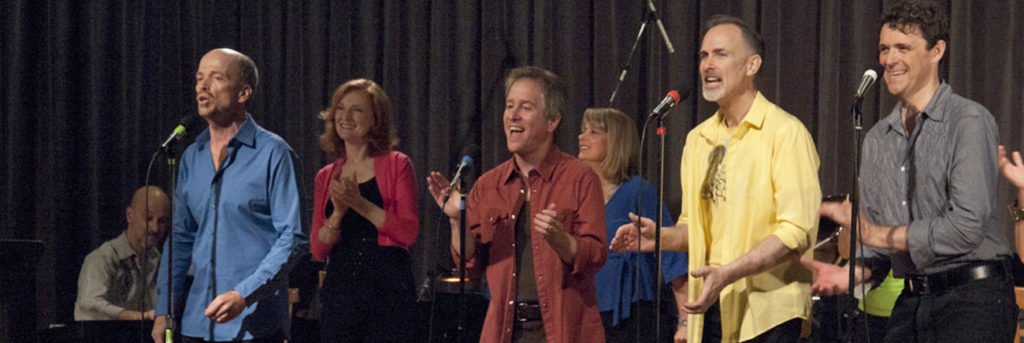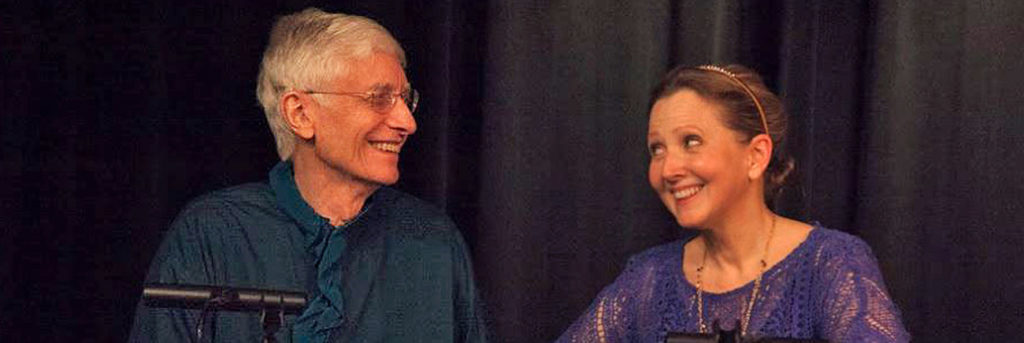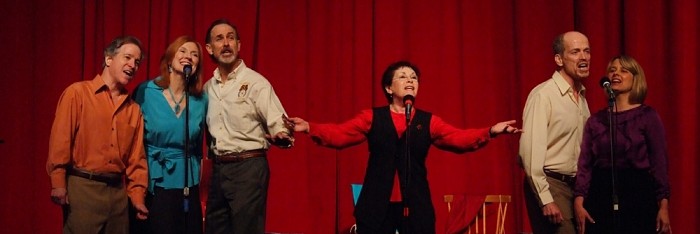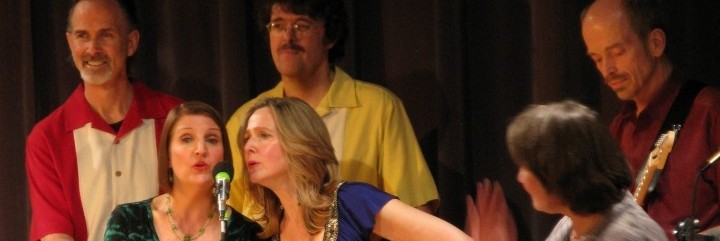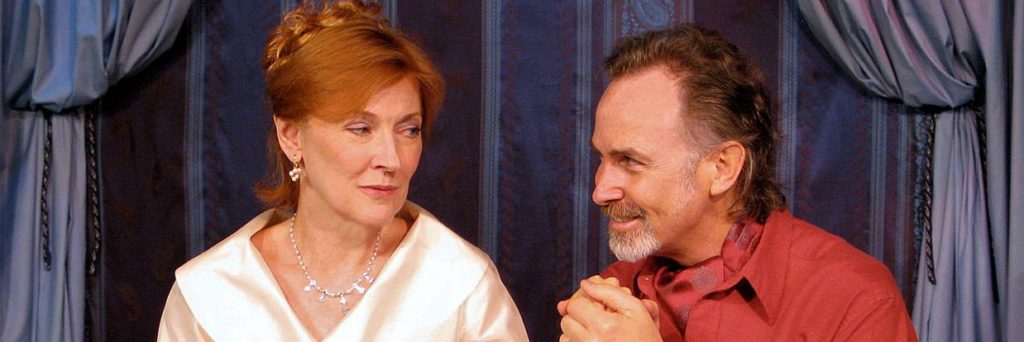it moves us very much to say formally on this website that Anne Fielding—one of the greatest actors in the world, and longtime director of this theatre company—has passed away. She died on January 15, 2023 shortly before her 90th birthday.
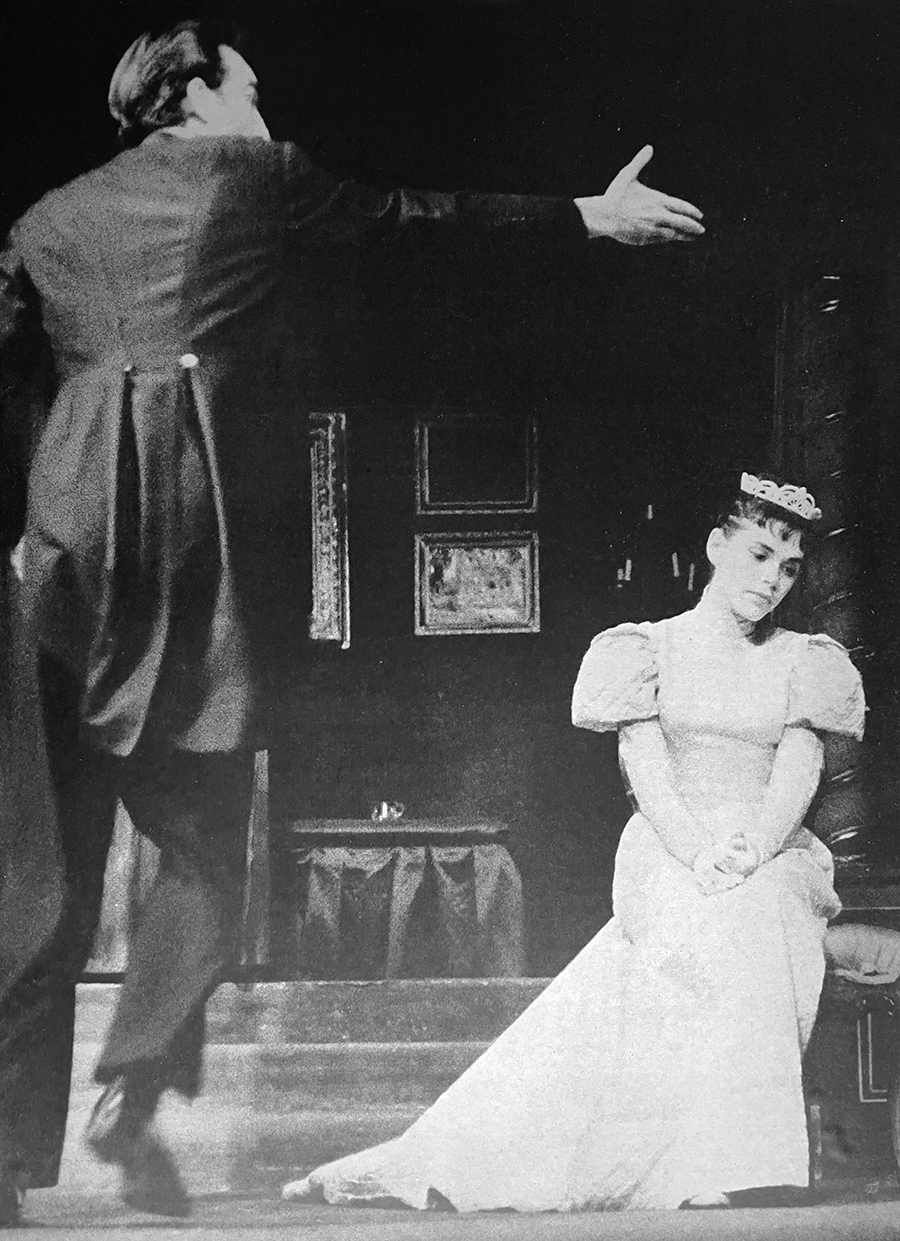
The bio of Ms. Fielding that has been included on this website for many years says something of her work in the theatre, and of her life itself. And we state this fact, with eternal congratulations to her, and gratitude: Anne Fielding was the first actor to see and say that the principles of Aesthetic Realism are true—magnificently true—about the art of acting. She saw—and showed through her own great and amazingly diverse dramatic work, through her teaching and her directing—that the Aesthetic Realism principles stated by Eli Siegel can bring out the best in a performer and enable us to be increasingly just to a role, a play, and the deepest hopes of an audience. (As director of the Aesthetic Realism Theatre Company, she taught us, for instance, to get within a character of Shakespeare, see more truly the depth in the humor of Oscar Wilde, feel the dramatic intensity yet subtlety of a scene by Ibsen, have the true Restoration rhythm and snap in a biting, witty line by Sheridan.)
There is very much to say about Anne Fielding and her meaning for art and for humanity. We are proud to include here several passages from a presentation she gave some years ago: “Anne Fielding: Actress, Consultant, Person.” These are statements that stand for her, and will have meaning for humanity forever.
Anne Fielding Says This
in aesthetic realism lessons conducted by Eli Siegel starting in 1953, I learned what the purpose of acting—the art I love—really is: to like the world. “Drama doesn’t fight reality,” Mr. Siegel said to me in one lesson: “it shows what reality is.” This amazed me, and I found that it is true.
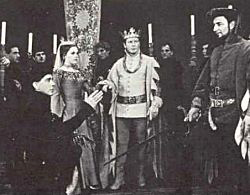
I learned that every character in a play, like every person, is made up of opposites [such as depth and surface, for and against, past and present, intensity and quiet] and that makes the character, like a person, alive and interesting. Looking at characters in plays this way enabled me, for the first time, to get within them, to feel what they feel, to become them. And when we become another person we are closer to our deepest purpose: to like the world itself.
In acting, the self becomes the world. That is why people like to act and also like to watch other people act. “Acting shows,” said Eli Siegel in the Aesthetic Realism Acting Lesson of 1961, “that you don’t have to be fettered to yourself. You can be other people. There is no limit to how much you can be other people.”
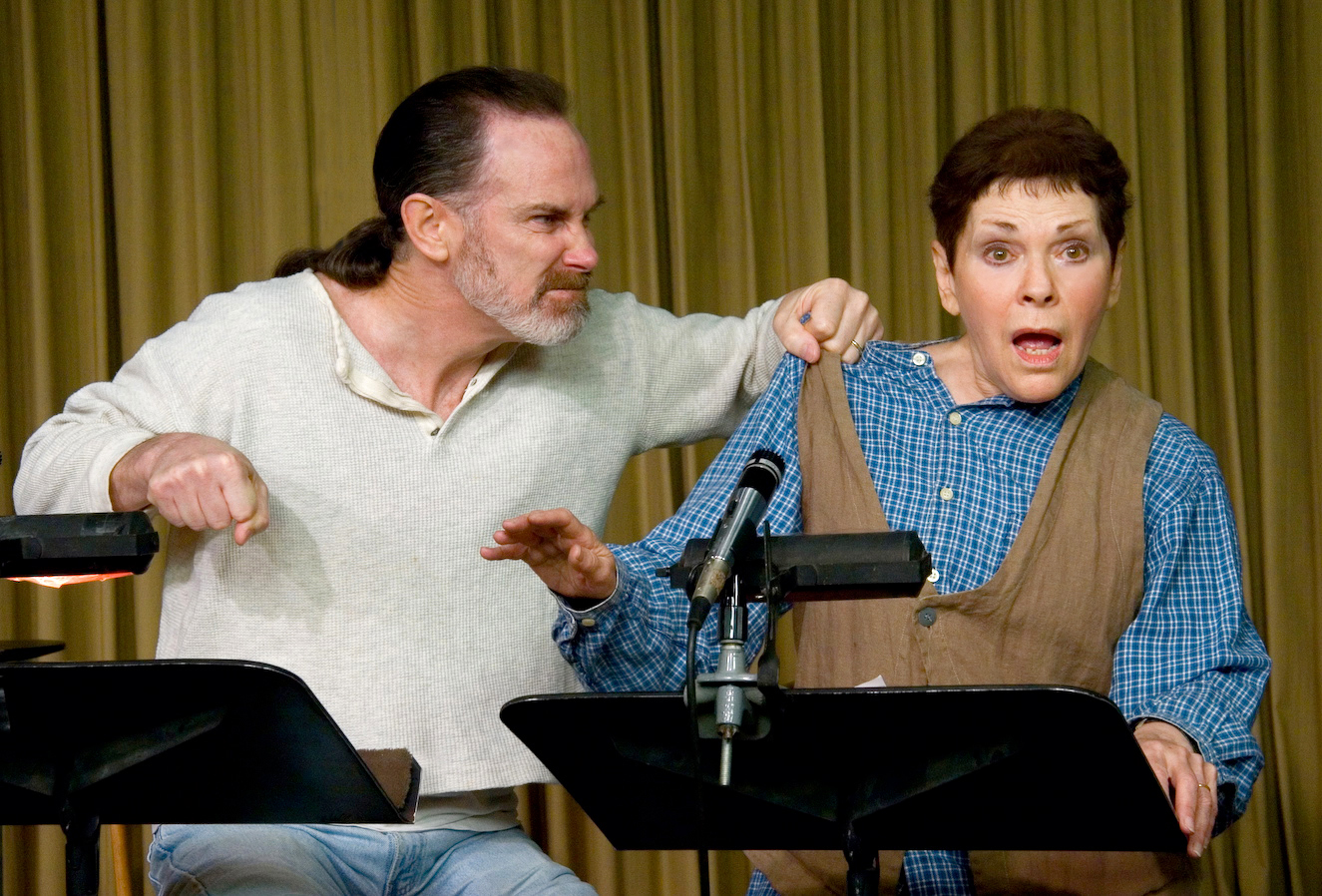
Two of the opposites I always wanted to put together, and which fought in me for many years, are in this short poem by Eli Siegel, which he wrote during an Aesthetic Realism lesson:
Can yet make sense.
My life is a success because I have been known by Eli Siegel. He taught me in Aesthetic Realism lessons and classes how these opposites can make sense, how the desire we all have to make a one in ourselves of dark and light, the hidden and shown, anger and radiance, can be met, and make tremendous good sense.
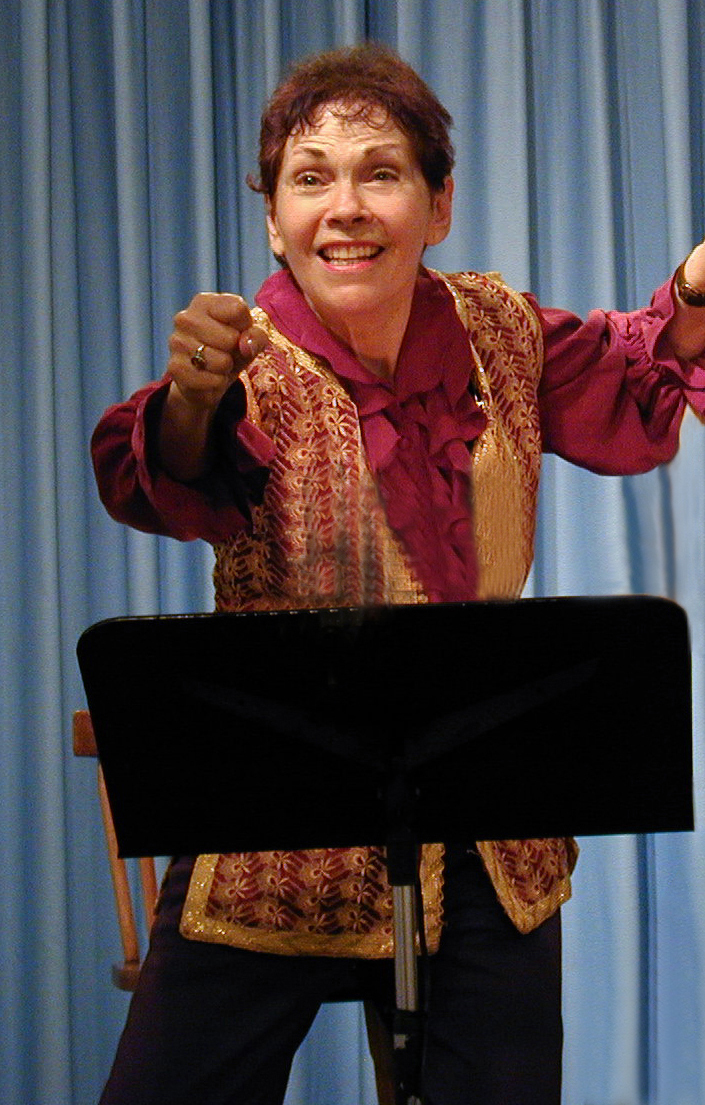
In another lesson, Mr. Siegel explained:
Eli Siegel. Reality has three moods, beneath, divine, and homespun. Which don’t you like?
Anne Fielding. Homespun.
Eli Siegel. I thought so. What is the homespun?
Anne Fielding. Reality, I guess.
Eli Siegel. Homespun is the ability to see reality not as a crisis . . . Do you think if there is no crisis, things are boring?
Anne Fielding. Yes. That’s one reason I want to act, I think. It seems like another world.
Eli Siegel. What do you see as boring?
Anne Fielding. Sometimes a whole day is boring.
Eli Siegel. That’s not specific. Things are boring because you lump them all together. Do you see an empty cotton spool as boring?
Anne Fielding. Yes.
Eli Siegel. You say that with the full depth of your perception—that it is boring?
Anne Fielding. Maybe not.
Eli Siegel. I’ll relieve you—it’s not. Do you think streets are boring?
Anne Fielding. Yes.
Eli Siegel. And rooms and scraps of paper and sweater threads? Do you think the edge of this board is boring?
Anne Fielding (pause). Now that I’ve looked at it, it isn’t boring.
Eli Siegel. As soon as you see a thing as individual, it’s not boring. The edge of this board has opposites, for one thing, and that makes it interesting. What do you think should be between moments?
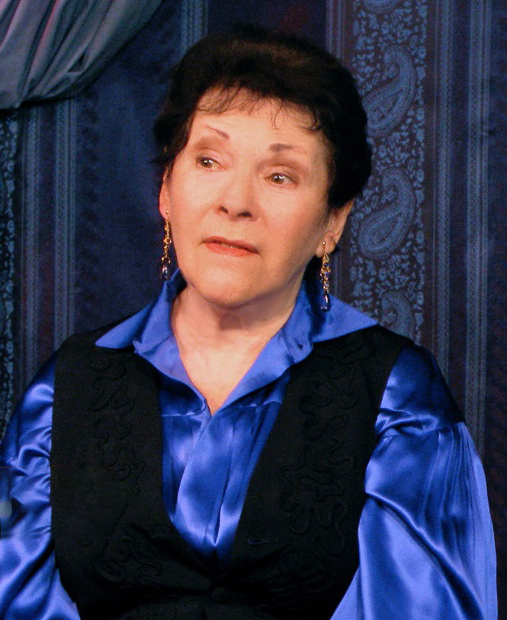
I say now to Mr. Siegel: Thank you for this lesson. It changed the course of my life. You freed me from a narrow way of seeing the world and taught me to have emotions about people I had despaired of having. What is in this lesson enabled me, in time, to understand the depths of another person well enough to become an Aesthetic Realism consultant.
At the end of the lesson, Mr. Siegel asked:
Eli Siegel. Is a play all high points?
Anne Fielding. No.
Eli Siegel. What’s in between?
Anne Fielding. Homespun?
Eli Siegel. Is a symphony all high points?
Anne Fielding. No.
Eli Siegel. That’s what Liberace gives you—only the high points. Your notion of drama is different from mine. Drama doesn’t fight reality, it shows what reality is.
Perhaps that sentence could be a motto of my life: “Drama doesn’t fight reality, it shows what reality is.”
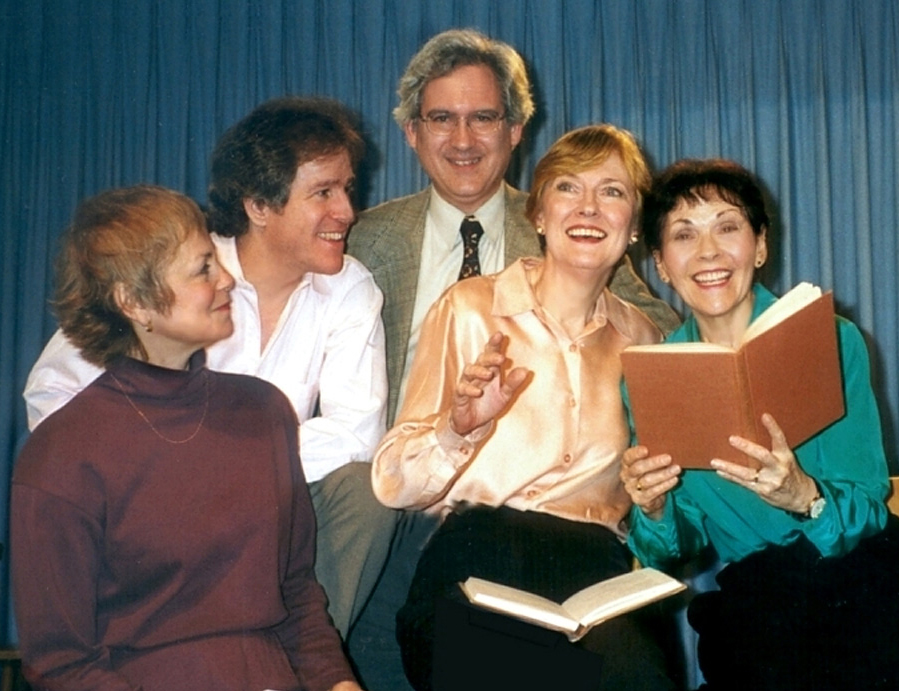
~ • ~ • ~ • ~ • ~ • ~ • ~
